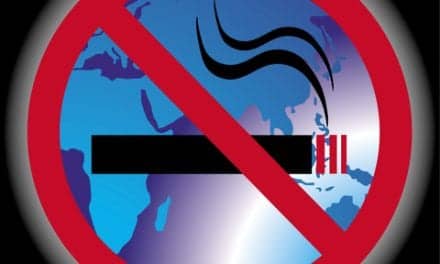The US FDA announced it will advance regulations to ban the sale of menthol cigarettes and all flavored cigars, which the agency says cause tobacco-related health disparities in communities of color and addict youth.
The FDA says it is working toward issuing proposed product standards within the next year to ban menthol as a characterizing flavor in cigarettes and ban all characterizing flavors (including menthol) in cigars.
“This decision is based on clear science and evidence establishing the addictiveness and harm of these products and builds on important, previous actions that banned other flavored cigarettes in 2009,” the agency said in a news release.
“Banning menthol—the last allowable flavor—in cigarettes and banning all flavors in cigars will help save lives, particularly among those disproportionately affected by these deadly products. With these actions, the FDA will help significantly reduce youth initiation, increase the chances of smoking cessation among current smokers, and address health disparities experienced by communities of color, low-income populations, and LGBTQ+ individuals, all of whom are far more likely to use these tobacco products,” said Acting FDA Commissioner Janet Woodcock, MD. “Together, these actions represent powerful, science-based approaches that will have an extraordinary public health impact. Armed with strong scientific evidence, and with full support from the Administration, we believe these actions will launch us on a trajectory toward ending tobacco-related disease and death in the US.”
According to the FDA, there is strong evidence that a menthol ban will help people quit:
- Studies show that menthol increases the appeal of tobacco and facilitates progression to regular smoking, particularly among youth and young adults.
- Menthol masks unpleasant flavors and harshness of tobacco products, making them easier to start using.
- Tobacco products with menthol can also be more addictive and harder to quit by enhancing the effects of nicotine.
- One study suggests that banning menthol cigarettes in the US would lead an additional 923,000 smokers to quit, including 230,000 African Americans in the first 13 to 17 months after a ban goes into effect.
- An earlier study projected that about 633,000 deaths would be averted, including about 237,000 deaths averted for African Americans.
“For far too long, certain populations, including African Americans, have been targeted, and disproportionately impacted by tobacco use. Despite the tremendous progress we’ve made in getting people to stop smoking over the past 55 years, that progress hasn’t been experienced by everyone equally,” said Mitch Zeller, JD, director of the FDA’s Center for Tobacco Products. “These flavor standards would reduce cigarette and cigar initiation and use, reduce health disparities, and promote health equity by addressing a significant and disparate source of harm. Taken together, these policies will help save lives and improve the public health of our country as we confront the leading cause of preventable disease and death.”
If implemented, the FDA’s enforcement of any ban on menthol cigarettes and all flavored cigars will only address manufacturers, distributors, wholesalers, importers and retailers. The FDA cannot and will not enforce against individual consumer possession or use of menthol cigarettes or any tobacco product. The FDA will work to make sure that any unlawful tobacco products do not make their way onto the market.
Healthcare leaders weighed in applauding the FDA’s (overdue) actions:
From American Lung Association president and CEO Harold Wimmer: “For generations, the tobacco industry has intentionally targeted Black, Brown and other communities with the marketing of menthol cigarettes, resulting in tobacco-related death and disease as well as health disparities. In fact, 82% of Black people who smoke use menthol cigarettes. It has also marketed menthol cigarettes to our nation’s youth, and now close to half of all kids start smoking with menthol cigarettes. To prevent tobacco-related death and disease, the American Lung Association has urged the end of menthol sales since 2011, and today welcomes this announcement as an important step to address tobacco-related health disparities.
From American Thoracic Society Tobacco Action Committee Vice Chair Hasmeena Kathuria, MD: “There is no question that menthol cigarettes are harmful and disproportionately target low-income individuals and Black Americans. This is an incredibly important step to improve health equity and we are pleased that the FDA is finally taking action to remove menthol cigarettes from the market.”
From Mike Bloomberg, WHO global ambassador for Noncommunicable Diseases and Injuries: “The FDA’s announcement that it will ban the sale of menthol cigarettes is a significant victory in our fight against the deadly, predatory tactics of the tobacco industry. The industry has targeted young people, especially in Black communities, with advertising campaigns that promote menthol products as healthy, safe, and cool. These tactics are a major reason why Black people suffer from such high rates of cancer, heart disease, stroke, and other tobacco-related conditions. For years, we’ve helped lead the charge for flavored tobacco bans – including menthol – in cities and state legislatures across the country, and we strongly supported the flavored tobacco ban passed by voters in San Francisco, the first major city to ban menthol cigarettes. The FDA’s decision shows that the federal government is now leading on this important issue, which means a uniform and coordinated approach to reducing smoking and saving lives – and that will help us build on the work we’ve been doing and make even more progress.”









